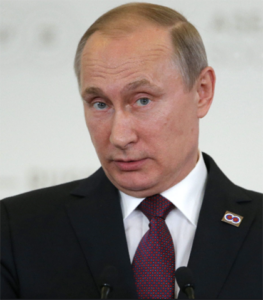COVID-19 a cover for repression – study says
Authorities worldwide are using the coronavirus pandemic as a pretext to crack down on human rights for political purposes, according to democratic think tank Freedom House.
In a new report, Freedom House has warned there is a real risk that this crisis could trigger a lasting global backslide in fundamental freedoms.
 Recently, the Russian government banned gatherings with more than 5,000 attendees until April 10, arguing that the move was necessary to limit the spread of COVID 19. While restrictions are necessary during a public health emergency, the announcement came on the same day President Vladimir Putin endorsed a proposal to allow him to remain in office until 2036.
Recently, the Russian government banned gatherings with more than 5,000 attendees until April 10, arguing that the move was necessary to limit the spread of COVID 19. While restrictions are necessary during a public health emergency, the announcement came on the same day President Vladimir Putin endorsed a proposal to allow him to remain in office until 2036.
In Moscow, where the opposition parties have previously mobilised tens of thousands of protesters, there were just 20 confirmed cases across the country at time of the ban.
The report says that while a pandemic creates an ideal situation for disinformation, many governments are using this threat to justify heavy censorship, smothering independent sources of information along with any legitimately harmful content.
In Iran, which has become the epicenter of the Middle East’s coronavirus pandemic, internet connectivity has dipped and Wikipedia’s Farsi edition was blocked, the report said.
“China has also deployed its sophisticated censorship apparatus against people contradicting the government’s narrative and those simply seeking health information,” the report said.
“And, using its controversial Protection from Online Falsehoods and Manipulation Act (POFMA), Singapore ordered Facebook to restrict domestic access to the States Times Review’s page.
“While the page may have published some problematic coronavirus-related content, it is run by a government critic, and authorities have repeatedly invoked POFMA to suppress dissenting voices,” the report said.
Freedom House says even liberal democracies risk normalizing emergency measures.
To track infections, the US reportedly pressured airlines to provide international travellers’ phone numbers and email addresses.
“It is important to communicate with and monitor infected passengers, but it is also crucial to ensure that any information collected is not misused and that these practices do not continue long after,” the report said.












